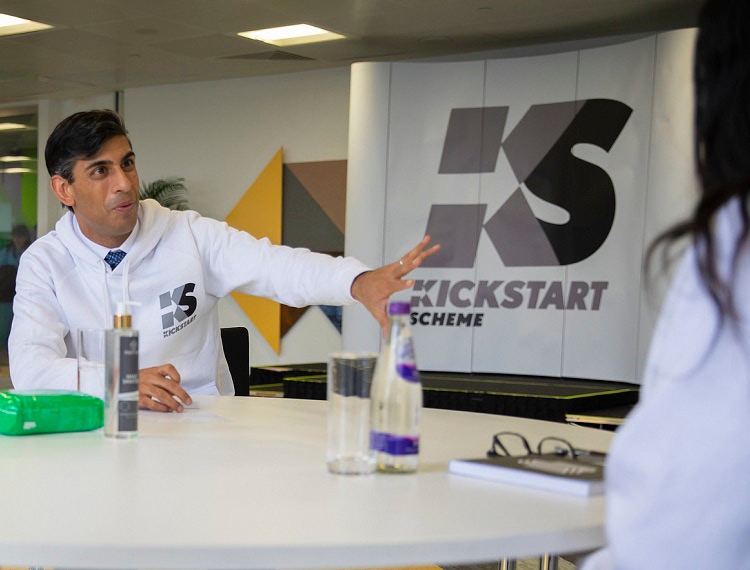Kickstart changes and five reasons to extend Kickstart

YEG co-chairs share five reasons to extend #Kickstart @ImpetusPEF @EmploymtStudies @PrincesTrust @YEUK2012 & @YF_Foundation
Ahead of the Chancellor’s announcement today regarding changes to the Kickstart scheme, the Co-Chairs of the Young Employment Group (YEG) highlight the importance of ensuring young people receive quality support and work placement experiences, and call for the Government to commit to extending the scheme past the December application deadline (see Five reasons to extend Kickstart below).
The Chairs of the Youth Employment Group said:
“Today the Government announced a removal of the minimum number of job placements an employer must create to apply to the Kickstart Scheme.
“Smaller employers may need help in knowing where to turn to for quality employability support, to reduce the administrative burden on SMEs, and spend the additional £1500 effectively to help move young people into sustained work. The Government also needs to ensure that the placements being approved are quality opportunities for young people in the geographies and sectors where they are most needed.
“The latest numbers of young people on Kickstart show that many employers have had no choice but to delay their placements given the continuing disruption of lockdowns. Logistically, it will be very challenging for businesses to meet the intended number of placements in such a reduced period. Extending Kickstart beyond December will give all employers engaged in the scheme the time they need to fulfil their plans and offer thousands more young people the opportunity of employment.”
Samantha Windett (Director of Policy, Impetus)
Tony Wilson (Director, Institute for Employment Studies)
Richard Rigby (Head of Policy and Public Affairs, The Prince’s Trust)
Laura-Jane Rawlings (Chief Executive Officer, Youth Employment UK)
Anna Smee (Chief Executive Officer, Youth Futures Foundation)
Five reasons to extend Kickstart:
1. Make up for lost (lockdown) time
Many employers have had no choice but to delay their placements (6-8-week delays are common). It’s logistically very challenging for them to play catch-up / cram the same number of intended placements into a reduced period. They need more time.
2. The problem won’t be fixed by December
Even in an optimistic scenario where hiring booms from the summer onwards, we know there’s never a quick fix for those at the back of the queue. Research shows how the ‘recovery years’ are not experienced by all. Recessions are longer and deeper for young people without higher qualifications. Whilst we hope youth unemployment will fall this year, ‘long-term’ youth unemployment may not fall until next year. Helping those at the back of the queue in 2022 is the best way to get value from the billions invested in Kickstart.
3. Secure its legacy
The DWP commitment to evaluate and adapt Kickstart provides a golden opportunity to develop a government response fit for future labour market crises. But continuous improvement requires time. It requires data about young people’s experience and their outcomes, which will now be delayed. If the programme can run for longer, even at a reduced scale, the learning gained will be transformational when the next crisis comes. This can secure the legacy of Kickstart.
4. Three is the magic number
When Kickstart was first announced, employers saw the opportunity to plan for three six-month cohorts, spanning 18 months. If they were quick, it was possible. Lockdown now makes this very unlikely. An extension would bring a three-cohort plan back to the table and reward the efforts the Government has already made to engage employers.
5. A route to apprenticeships
Several employers are commencing Kickstart placements in March 2021 with the aim of taking these young people into their September apprenticeship intake. It’s a good idea. Extending Kickstart would enable this to happen twice. It could help turn the tide on the lack of apprenticeships going to NEET young people. And for those not recruited to apprenticeships, T Levels could be the answer.











Responses